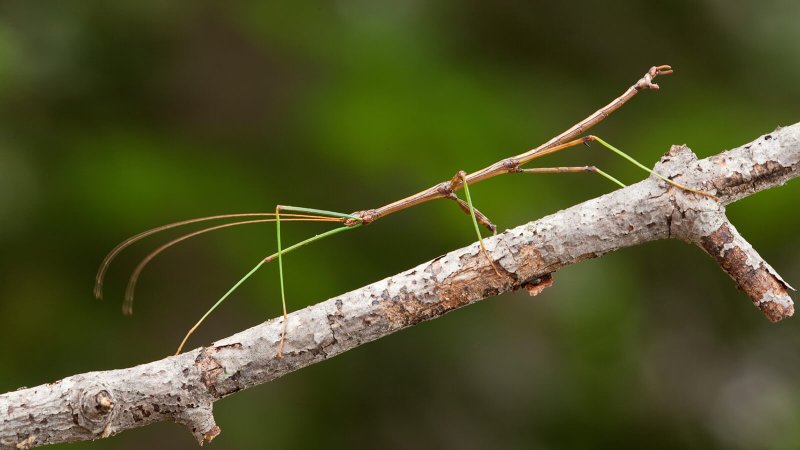Can we predict the course evolution will take? That’s the question an international team of researchers decided to tackle, using a quarter-century of stick insect observations. Comparing the first half of the data set to the latter half, they set out to see if they could forecast the path of natural selection.
As it turns out, it’s really hard. The researchers were able to predict some simple evolutionary changes, but the rest were subject to forces they couldn’t account for.
…
The dominant coloration among the stick insects changes, though, and the researchers used this fluctuation to try and predict which pattern would be more prevalent in a given year. With the first decade or so of stick insect data as a guide, they attempted to guess what colors would show up in the next few years. They published their work recently in the journal Science.
They were actually successful — to a degree. The researchers were quite good at predicting when the green striped insects or the unstriped green stick insects would dominate over the other.
…
But for the brown stick insects, it seems that there are many more variables at play.
…
Their conclusions are backed up by other studies of evolution, such as in Darwin’s finches, or the peppered moth. Scientists had little success guessing how those animals would adapt.
Read full, original post: Is It Possible to Forecast Evolution?































